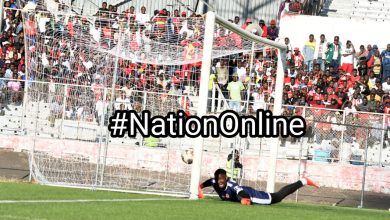Clubs say financial constraints hindering club licensing drive
Some TNM Super League clubs have admitted that they are struggling to meet club licensing requirements in full due to financial constraints and lack of strategic direction from football authorities.
Football Association of Malawi (FAM) requires clubs to meet specific licensing criteria, encompassing sporting, infrastructure, administrative, legal, financial, and business/ commercial aspects.

But Weekend Nation has established that among others, except for a few such as Silver Strikers, FCB Nyasa Bullets and Mighty Wanderers, most of the clubs are far from achieving the set standards.
Under administration and personnel criteria, clubs are required to have an administrator, an accountant and other qualified personnel, but most the teams still do not have fully-fledged secretariats and operate under elected or appointed executive committees.
Mighty Tigers, Karonga United, Mzuzu City Hammers, Songwe Border United, Chitipa United, Moyale Barracks, Mafco FC and Kamuzu Barracks are some of the clubs that are yet to meet most of the requirements.
On the other hand, Silver Strikers FC, FCB Nyasa Bullets and Mighty Wanderers are the few clubs in the 16-team top flight that meet most of the requirements.
The teams that Weekend Nation spoke to attributed the flaws to lack of policy guideline, financial constraints and commitment and enforcement on the part of the authorities.
Tigers general secretary (GS) Chisomo Sabola admitted that they do not have the structures in place and executive committee officials run the affairs of the club.
He said: “We have no full-time personnel to carry out the administrative work of the team. We still rely officials due to financial constraints.
“Realistically, our league is still at an amateur level and all the teams, including those considered as well-established and big clubs, operate at a loss despite having sponsors.
“Under such circumstances, you cannot talk of having a professional set-up.
“Our focus has been prioritising players’ welfare. The set standards also require mindset change and there is need for football bodies to provide policy guidelines and capacity building on how clubs can embrace that. At the meantime, there is nothing we can do about it.”
On his part, Karonga United technical director Alufeyo Chipanga Banda said they cannot have a fully-fledged secretariat when they are failing to pay players.
However, he said for the drive to materialise, clubs must at least have an enabling environment, financial muscle and professional personnel.
He said: “If you look at the clubs such as Silver and Bullets, firstly, they were already financially independent coupled with progressive-minded people. That is why we see them where they are today.
“Karonga United has on several occasions tried to take this route, but it didn’t work out because people’s assumption was that there was already money in place. The moment they realise there is no money, they back off.”
Mzuzu City Hammers GS Benjamin Thole said while they have structures in place, they do not have funds to employ personnel.
Songwe Border United GS Palisha Swira said professionalism cannot only be achieved through podium talk.
He said: “Club licensing needs strategic approach that should be championed by football bodies before spreading to clubs.
“There is nothing we can point out that the authorities have done for the clubs to embrace the said change. It’s all about talking with little or no action.”
Moyale Barracks FC GS Mike Chimwala said while there have been efforts on their part to adopt new ways of running the clubs, “such efforts need collaboration between team owners, in our case the Malawi Defence Force (MDF), and football bodies”.
He said: “For now, we are not seeing such collaboration to have modern ways of running clubs in place.”
Super League of Malawi officials refused to comment when contacted on the matter, but FAM competitions and communications director Gomezgani Zakazaka said club licencing, if fully embraced, can transform the game.
However, he was quick to admit that most clubs are facing financial constraints, making it difficult for them to fully comply with the club licensing requirements.
Said Zakazaka: “It is not a day’s job to transform Malawi football. What is lacking is for clubs to abide by what they subscribe to in processing their commitments to be part of the league at elite level.
“We need to professionalise. The professional aspect will set the ball rolling and bear desired results.”
On his part, football analyst Kevin Moyo said: “South Africa and Egypt, who are considered as models of football development on the continent, have individually owned teams due to such kind of set-up and the professional aspect is the only lifeline for the survival of teams in these countries.
“This is the more reason Fifa advised FAM to reduce institutional teams in 2012 when the world governing body came up with the document dubbed The Lilongwe Declaration.
“Another important element that is neglected locally is for football to give value for money to the corporate world. Gone are the days when the corporate world would come into football as corporate social responsibility as is the case with the sponsorship of the Super League or sponsorship of some clubs.
“Teams should develop business models which would benefit any partner who comes to pump money into a football club so the element of sponsorship should be substituted for partnership in a win-win situation.”
Another football analyst Charles Nyirenda said there is no will power to change on the part of clubs in the country.





